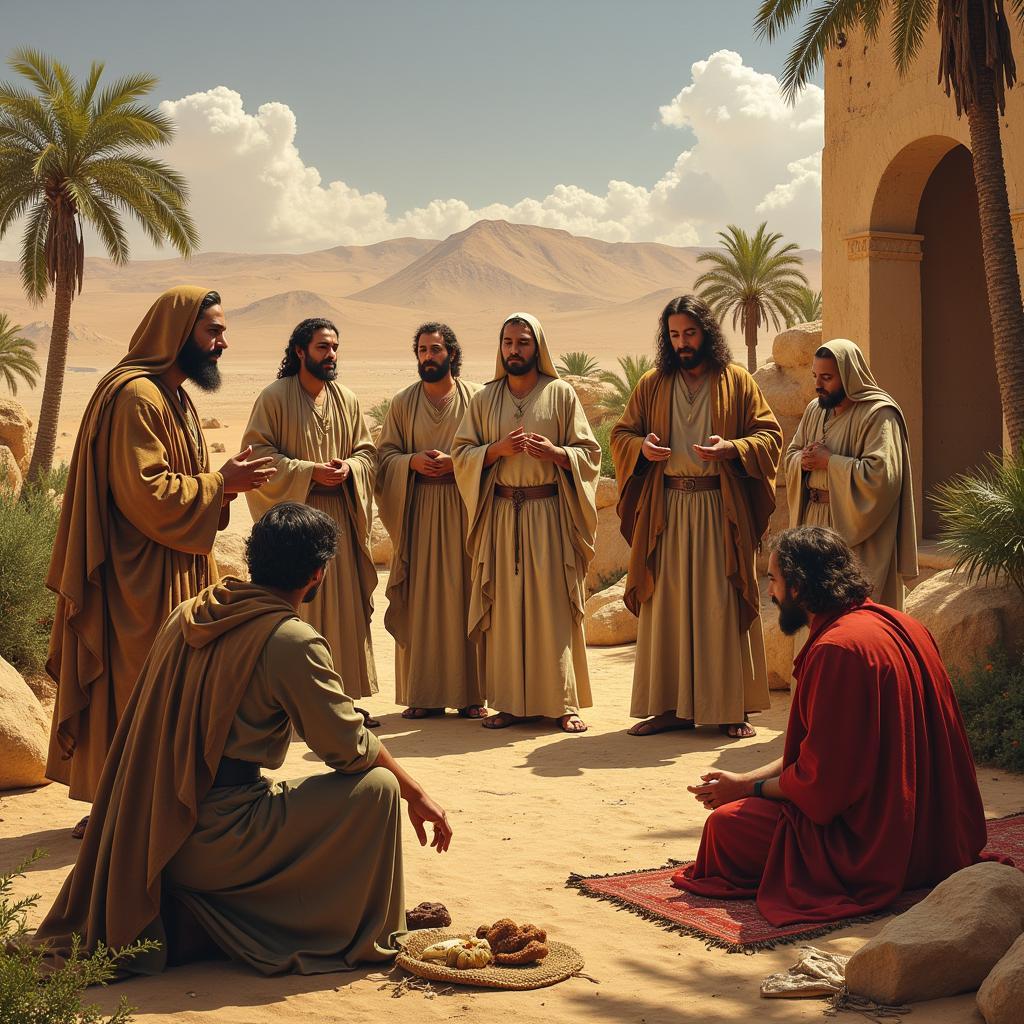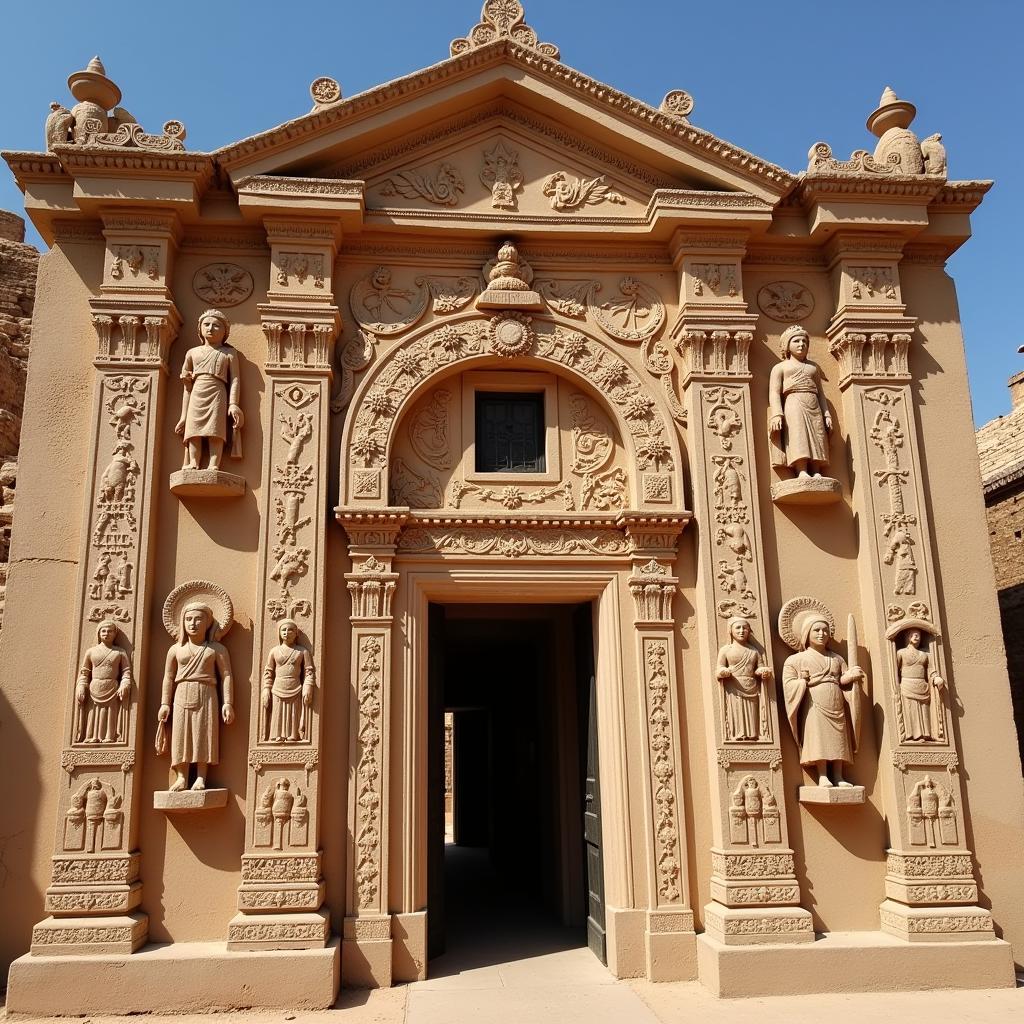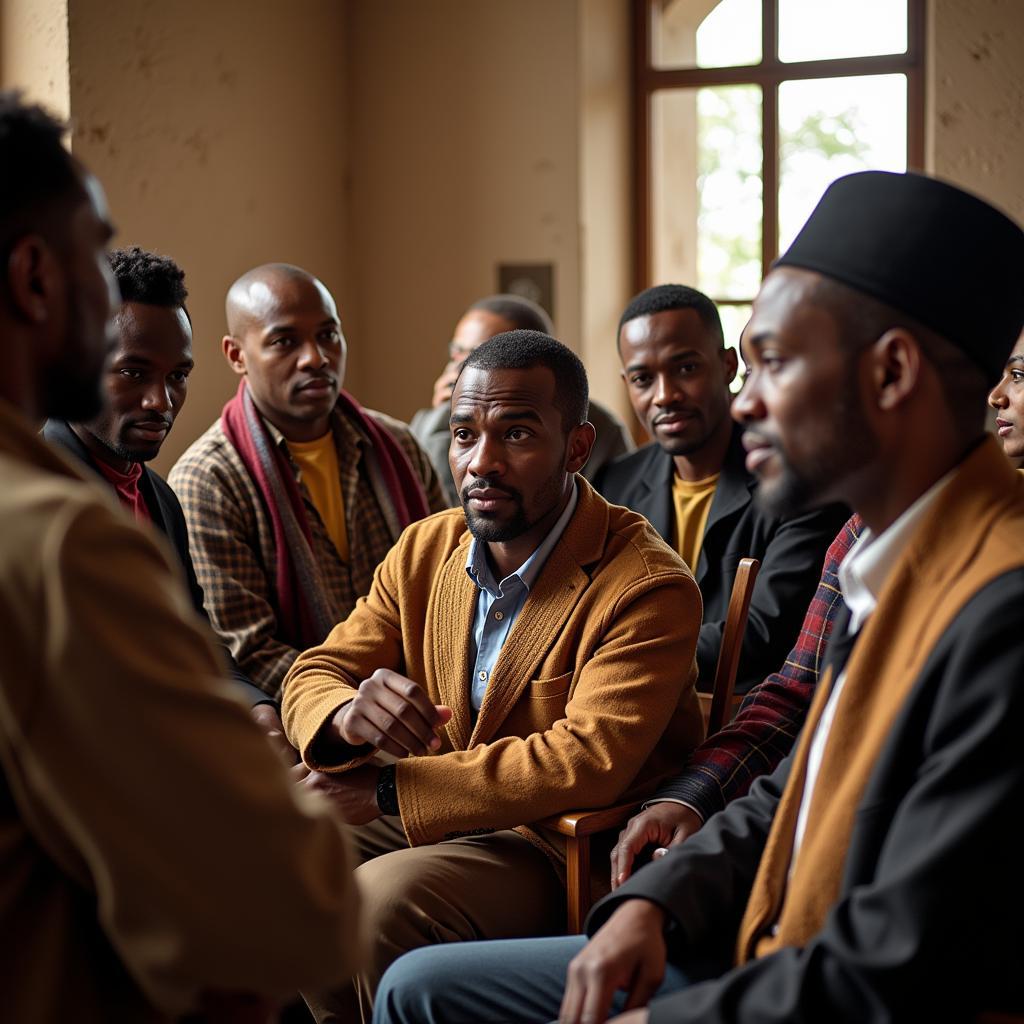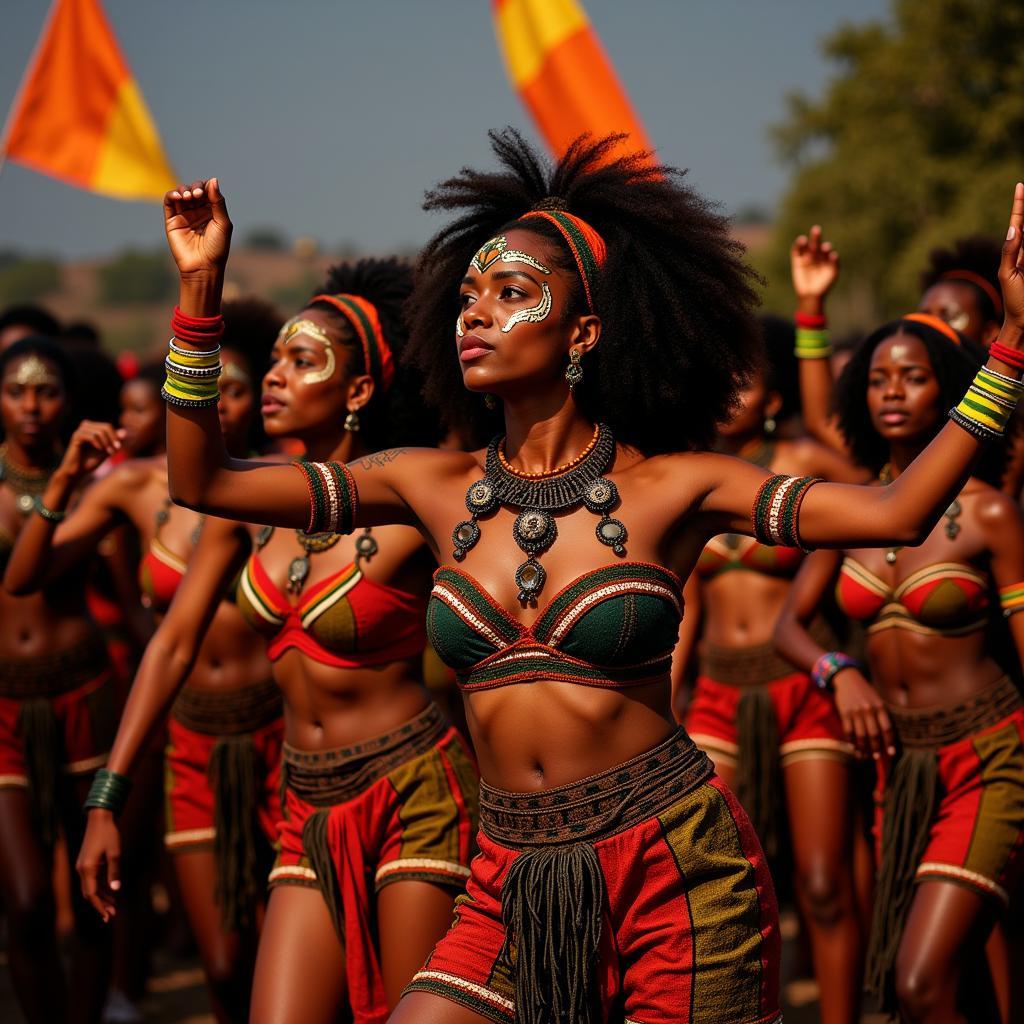The Enduring Legacy: Exploring African Church History
African Church History is a rich tapestry woven from threads of indigenous beliefs, the arrival of world religions, and the continent’s tumultuous journey through colonization and independence. Often overlooked in mainstream historical narratives, the story of Christianity in Africa is one of resilience, adaptation, and ultimately, an enduring legacy that continues to shape the continent today.
 Early Christian Communities in Africa
Early Christian Communities in Africa
Before the Transatlantic Slave Trade: The First Churches of Africa
While many associate Christianity’s arrival in Africa with European colonialism, the faith had already taken root centuries earlier. The continent, in fact, lays claim to one of Christianity’s oldest churches, the Coptic Orthodox Church of Alexandria, Egypt, founded in the 1st century AD. This early church played a significant role in the development of Christian theology and tradition, boasting renowned scholars like Origen and Clement of Alexandria.
Further south, the Aksumite Empire, located in modern-day Ethiopia and Eritrea, embraced Christianity in the 4th century, making it one of the first kingdoms in the world to adopt the faith as its official religion. These early African churches flourished, leaving behind impressive architectural marvels like the rock-hewn churches of Lalibela in Ethiopia, a testament to the deep roots and vibrant expression of Christianity in this part of the world.
 Aksumite Era Church Carvings
Aksumite Era Church Carvings
Colonialism and Christianity: A Complex Relationship
The arrival of European powers in the 15th century brought a new wave of Christian missionary activity to Africa. However, this period is marked by a complex interplay of faith, power, and exploitation. While some missionaries genuinely sought to spread the Gospel, their efforts were often intertwined with the colonial agenda, leading to the suppression of indigenous beliefs and practices.
Despite the challenges, Christianity found fertile ground among many African communities. The message of equality and hope resonated with those who were marginalized and oppressed under colonial rule. African converts began to reinterpret Christianity through their own cultural lens, leading to the emergence of independent churches that incorporated local traditions and customs.
 African Leaders in Religious Dialogue
African Leaders in Religious Dialogue
African Churches in the Post-Colonial Era: A Force for Change
The post-colonial period witnessed the rapid growth and diversification of Christianity in Africa. As nations gained independence, African churches played a crucial role in shaping national identities and advocating for social justice. From the anti-apartheid movement in South Africa, where figures like Archbishop Desmond Tutu emerged as powerful voices for equality, to the peacebuilding efforts in conflict zones across the continent, African churches have been at the forefront of social and political transformation.
Looking Ahead: African Christianity in the 21st Century
Today, Africa is home to the largest Christian population in the world, with a vibrant and diverse tapestry of denominations, from Pentecostalism to Catholicism. This growth is not without its challenges, as issues of poverty, conflict, and interfaith relations continue to shape the religious landscape.
However, African Christianity, with its deep roots, unwavering resilience, and commitment to social justice, continues to be a force for positive change on the continent and beyond. As we move further into the 21st century, understanding the complexities of African church history is crucial for appreciating the dynamism of this global faith and its potential to address the challenges facing humanity.
FAQ:
1. What is the oldest Christian church in Africa?
The oldest Christian church in Africa is the Coptic Orthodox Church of Alexandria, Egypt, founded in the 1st century AD.
2. How did colonialism impact Christianity in Africa?
Colonialism had a complex impact on Christianity in Africa. While it led to the spread of the faith, it was often intertwined with the suppression of indigenous beliefs and exploitation. However, Christianity also offered hope and a sense of community to many Africans during this period.
3. What is the significance of African churches in the post-colonial era?
African churches have played a vital role in shaping national identities, advocating for social justice, and promoting peacebuilding efforts across the continent.
4. What are some of the challenges facing African Christianity today?
Some of the challenges facing African Christianity include poverty, conflict, interfaith relations, and the rise of religious extremism.
5. Why is it important to study African church history?
Understanding African church history provides valuable insights into the continent’s cultural, social, and political landscape. It also highlights the diversity and dynamism of Christianity as a global faith.
Other Resources:
- For insights into African football, visit: african football fixtures
- Discover more about the African Cup of Nations: african cup of nations 2017 wiki
Need More Information?
Contact us at:
- Phone: +255768904061
- Email: kaka.mag@gmail.com
- Address: Mbarali DC Mawindi, Kangaga, Tanzania
Our dedicated customer service team is available 24/7 to assist you.


